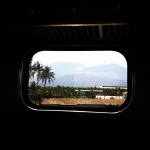硬殼海洋生物面臨被逐漸酸化海水溶解的危機,就像一塊粉筆在醋中溶解一樣。但是海洋酸化與氣候變遷並沒有直接關係。伊利諾大學大氣科學家耶納(Atul Jain)、卡內基機構科學家卡拉得亞(Ken Caldeira)和研究生隆高(Long Cao)的研究顯示,氣候變遷對未來海洋酸度的變化沒有太大的影響。
海洋酸度會增加是因為海水吸收從工廠和汽車釋放到大氣的二氧化碳。高酸度的海水威脅海洋生物的生存,包括珊瑚和貝類,即便地球暖化低於目前的預期,這些生物有可能在這個世紀末滅絕,原因是二氧化碳對海水造成的化學作用。
先前的研究只有指出,大氣中漸增的二氧化碳量導致海洋酸度增加及碳離子的減少,兩者皆使海洋生態系統遭到威脅。但是之前的研究沒有顯示,氣候變遷與漸增的二氧化碳濃度結合,會如何影響海洋化學組成和生物。
研究人員的新發現,也對於近期提出以工程方式減緩全球暖化抱持懷疑態度,例如把反射氣球投進大氣中,或在衛星軌道上,架起大陽傘。這些道具試圖以阻擋局部太陽光的方式,達到冷卻效果,以減緩溫室氣體效應。
Like a piece of chalk dissolving in vinegar, marine organisms with hard shells are in danger of being dissolved by increasing acidity in the oceans. But the rising ocean acidity may not be related to climate change. The study by University of Illinois atmospheric scientist Atul Jain, Carnegie Institution scientist Ken Caldeira, and graduate student Long Cao suggests that future changes in ocean acidification are largely independent of climate change.
Ocean acidity is rising as sea water absorbs more carbon dioxide released into the atmosphere from power plants and automobiles. The higher acidity threatens marine life, including corals and shellfish, which may become extinct later this century from the chemical effects of carbon dioxide, even if the planet warms less than expected.
In previous studies, increasing levels of carbon dioxide in the atmosphere led to a reduction in ocean pH and carbonate ions, both of which damage marine ecosystems. What had not been studied before was how climate change, in concert with higher concentrations of carbon dioxide, would affect ocean chemistry and biology.
The researchers’ findings call into question a number of engineering schemes proposed as mitigation strategies for global warming, such as lofting reflective balloons into the stratosphere or erecting huge parasols in orbit.
By blocking some of the sunlight, these devices would create a cooling effect to offset the warming caused by increasing levels of greenhouse gases.




